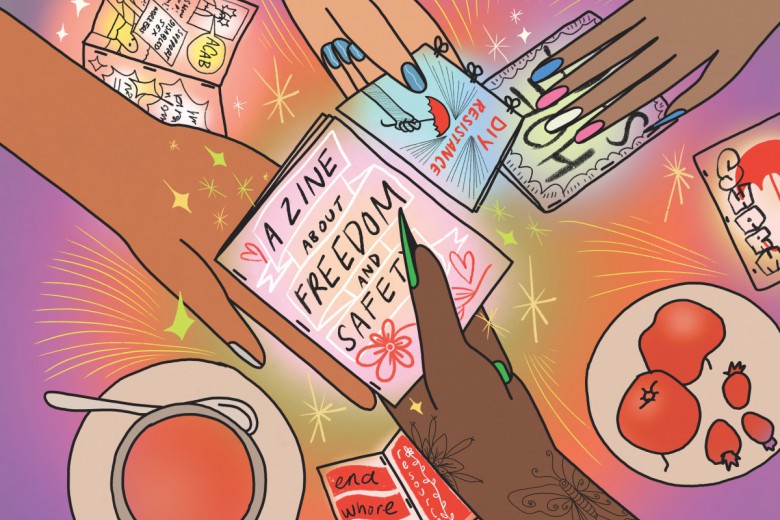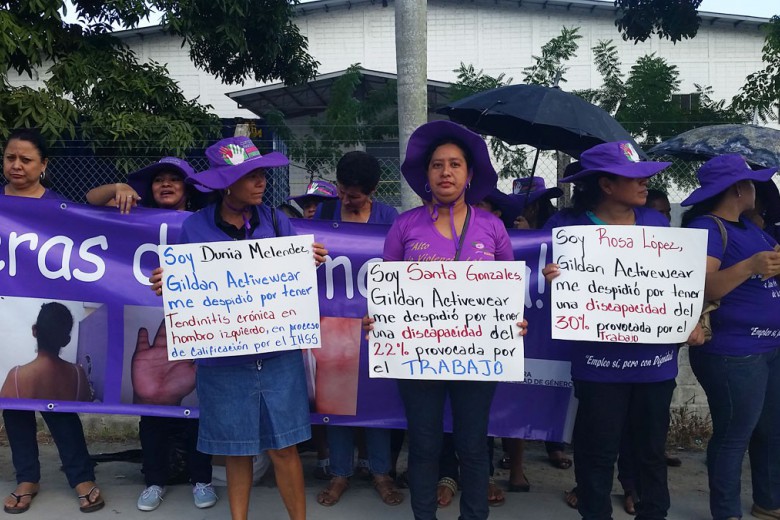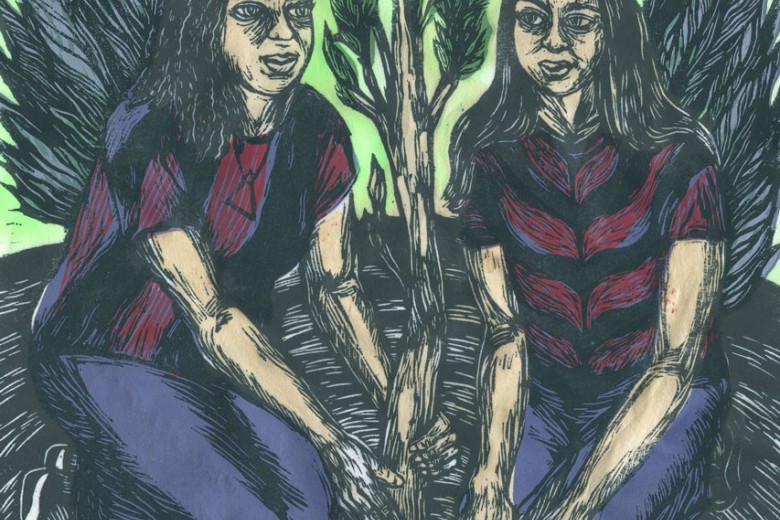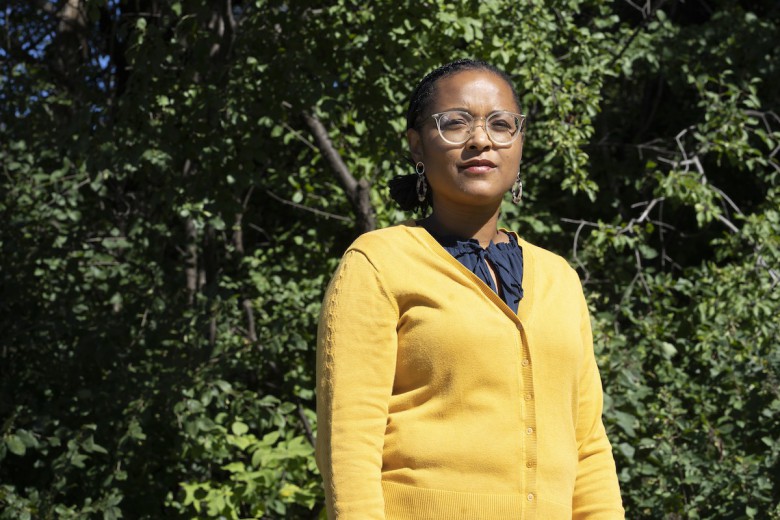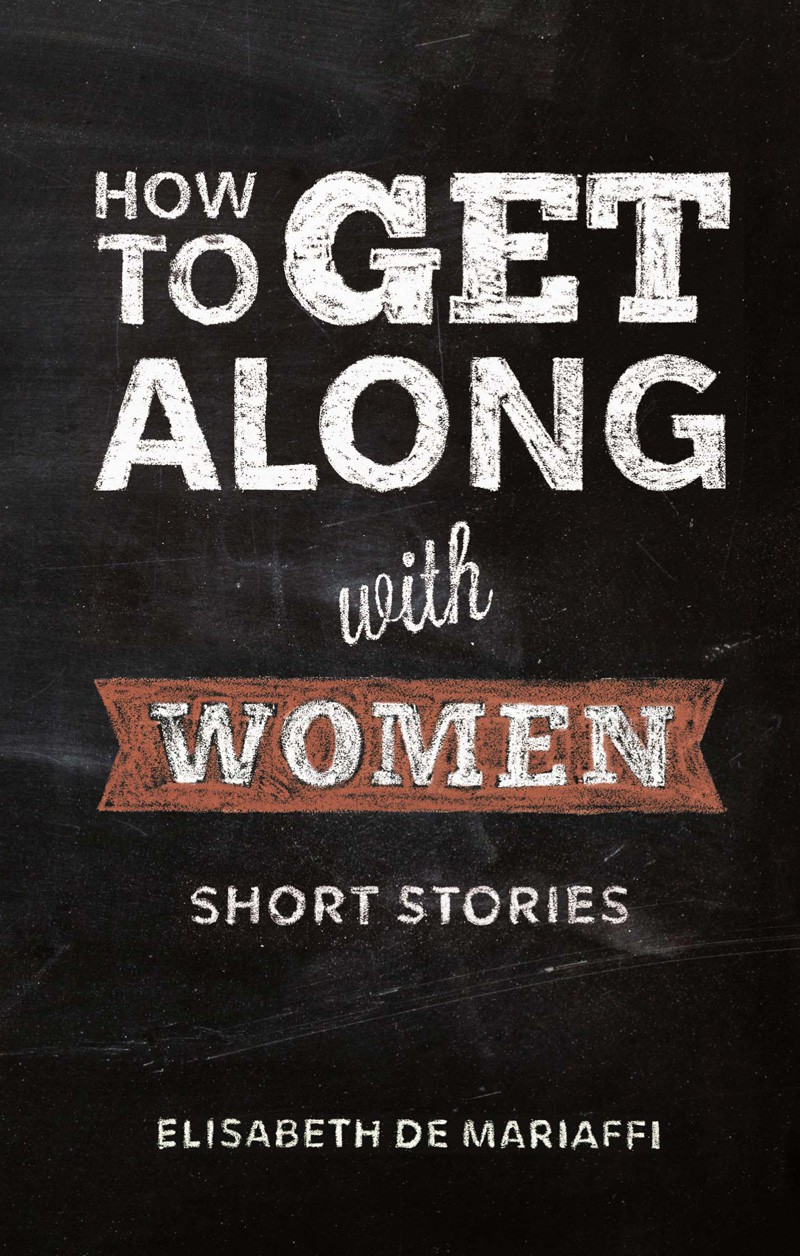
How to Get Along With Women
By Elisabeth de Mariaffi
Invisible Publishing, 2012
The 11 stories in Elisabeth de Mariaffi’s debut story collection, How to Get Along With Women, take place in locales as diverse as Sault Ste. Marie, Ont., and Marseille, France. The stories are intimately linked to their particular settings; in each, de Mariaffi explores how the characters’ actions are shaped by their geographical, historical, or political place in the world.
The 10-year-old protagonist of “Kiss Me Like I’m The Last Man On Earth” lives in north Toronto and grew up overhearing stories about the Second World War told by her Hungarian refugee grandmother and her Jewish neighbours. With her young Latvian Jewish neighbour, she creates a prisoner-of-war camp in his family’s basement, and the game spirals disturbingly out of control. The story vibrates with a nauseating energy, an unsettling meditation on the use of power by those who don’t understand it and the far-reaching legacy of war.
De Mariaffi has crafted a brilliant character in the precocious small-town boy in “The Astonishing Abercrombie!” – a “quality youngster” with a “sunny disposition,” despite having taken it upon himself to care for his father and younger brother when his mother disappears one night. “What Peteyboy likes to do when Mama is gone is get up into a tree and watch down the road to see is she coming back yet,” says the stoic child about his younger brother.
“You can’t fault him for this because he’s young and little kids do a lot of worrying.” Abercrombie’s voice is pitch perfect; your heart aches as he tries valiantly to hold his disintegrating family together, his choices and actions limited by his position within his small world.
As the book shifts between stories, de Mariaffi’s precise prose alters to suit the mood and tone. When the narrator in “He Ate His French Fries In A Light-Hearted Way” hugs her dying friend, she describes his body “like a bag of things you donate to the food bank, like everything he was made of was heavy, but loose.” “Accidental Ponds” is narrated in short, sharp sentences that cut straight to the bone: “I’m learning to mimic the way you talk, using old words in new ways. Knickers. Brilliant. Nice, meaning good-looking. It takes a long time to pull you from my mouth.”
Despite what one may assume from its title, de Mariaffi’s collection does not seek to provide a prescription for those seeking better, happier relationships with the women in their lives. Rather, building upon her interest in the impact of place on people, she examines that shifting, intangible thing that permeates every relationship: power.
In “Field Work,” a group of women scientists, attempting to study a rare species, capture and then successfully breed a sample of tiny men. What seems at first a science-fiction allegory retreading territory better covered by feminism’s second wave eventually reveals itself as a nuanced inspection of the struggles among members of a dominant group.
The title story traces the year-long arc of a straight, romantic relationship between two unnamed characters. She flirts with his brother, compares her body to his mother’s, and contemplates an affair with an older man. His sister warns him about her, explaining, “She doesn’t know how to get along with women.” He moves through the story emotionally half-asleep, inert. They move in with his parents while he finishes his degree, and he gets a night job, wearing a uniform “with someone else’s name on it.” He finally asserts himself in the last few paragraphs – a disturbing scene at the tangled intersection of sex, consent, and power.
Interestingly, the stories that deal most explicitly with gender dynamics are written in an emotionally distant tone. Several other stories address similar themes but allow the reader to feel the frustrations and ambiguous desires of the characters. These scenes are some of the most compelling in the book, illuminating the contradictions of living in a gendered world.
How to Get Along With Women is a finely written collection exploring the ways our identities, our most intimate relationships, and our experiences can be shaped by the world we inhabit, a world mapped by dynamics of power. De Mariaffi’s insights pierce deepest when she brings the reader close to the heart of her characters.


